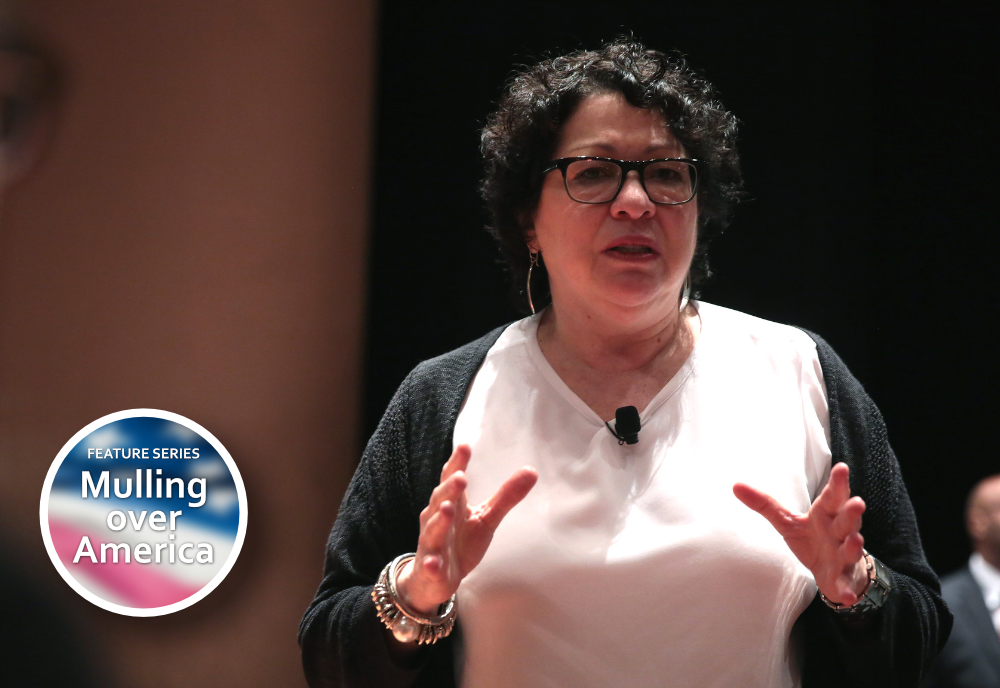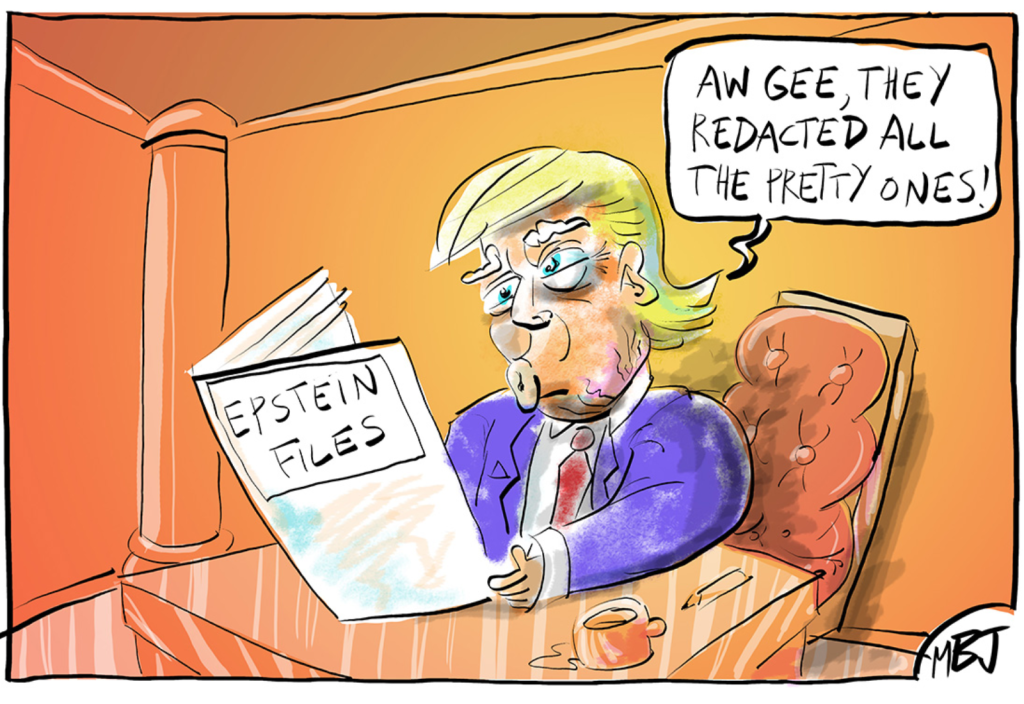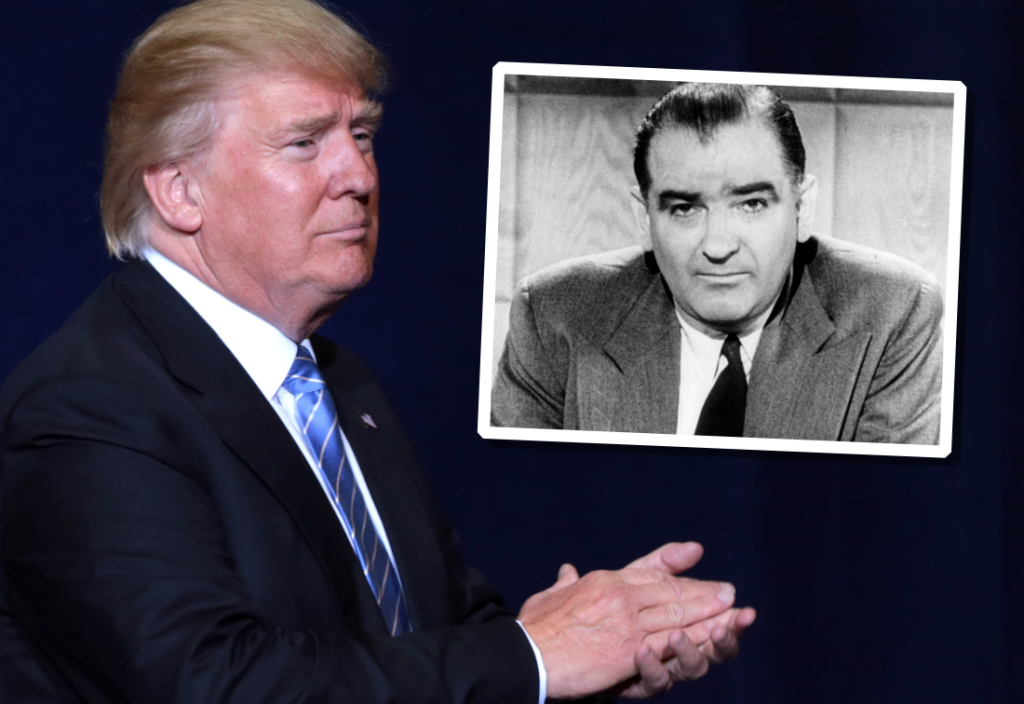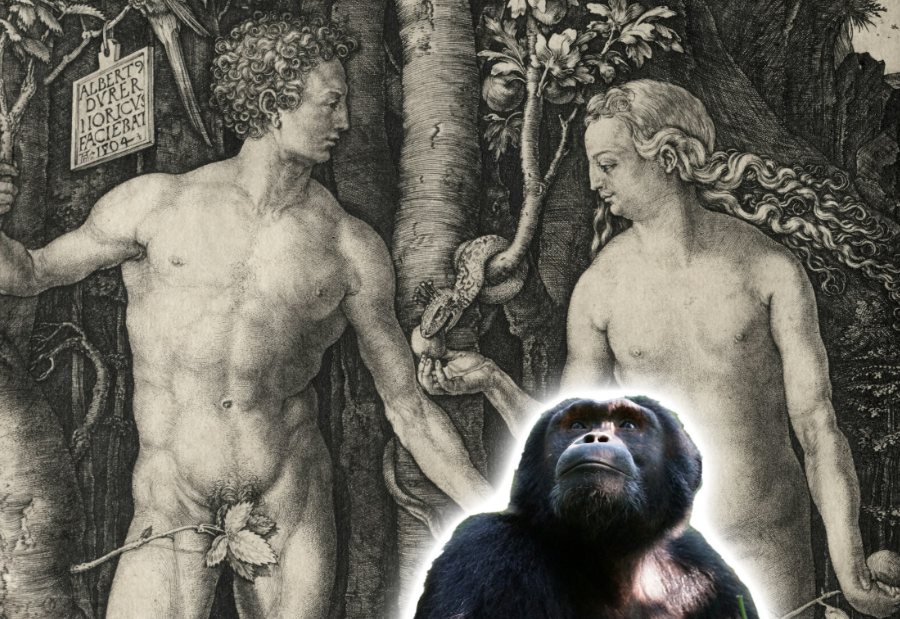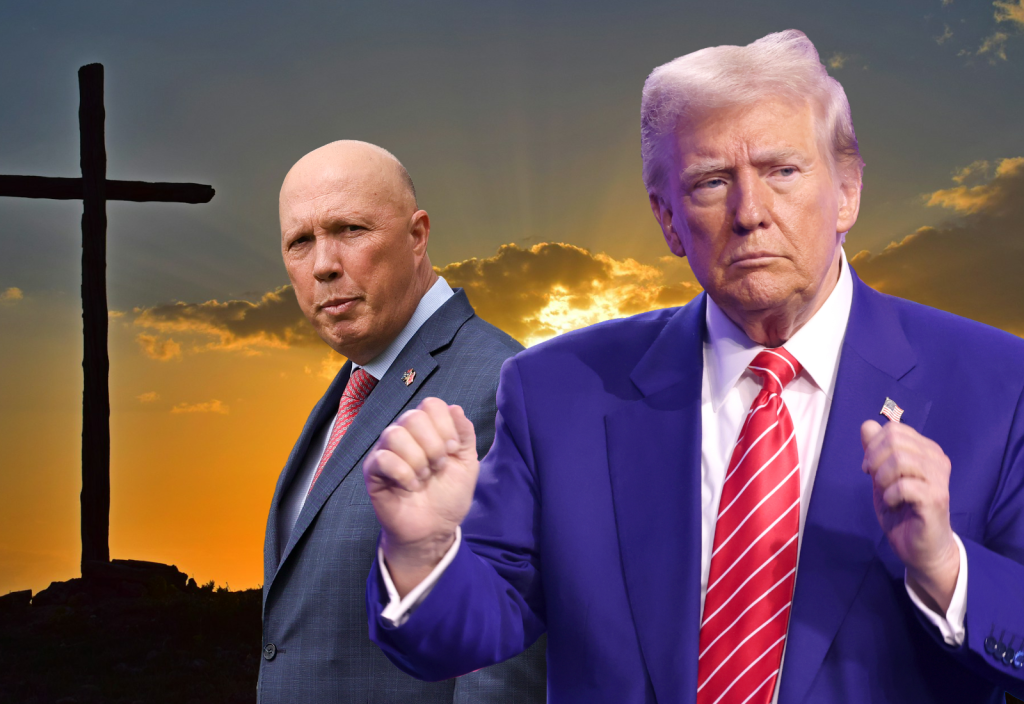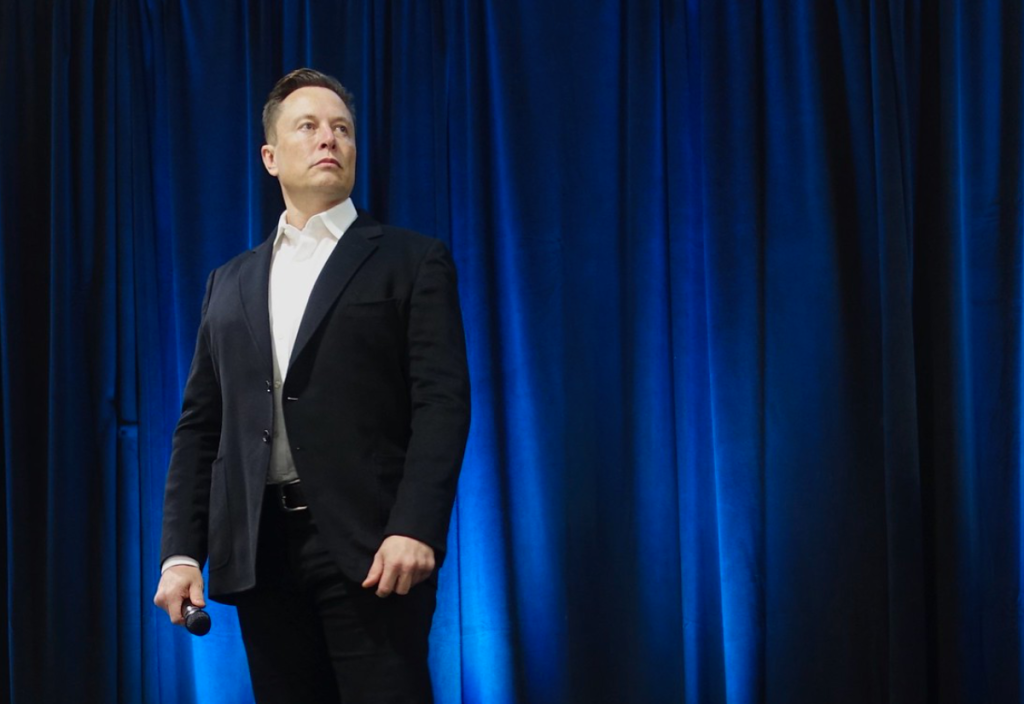This article is part of our ‘Mulling over America’ feature series, with contributors providing Rationalist perspectives on what is happening in the United States in the lead-up to the Presidential Election. If you would like to contribute to the feature series with an article or respond with a Letter to the Editor, find out how to here.
On 25 April this year, the US Supreme Court considered whether Donald Trump could claim immunity for alleged transgressions while in office. On 1 July, it rendered judgement. A majority of the bench ruled that the President (Trump):
…has absolute immunity from criminal prosecution for actions performed within the outer perimeter of his official responsibilities, and that the indictment’s allegations fell within the core of his official duties.
Three justices dissented: Sotomayor, Kagan and Jackson.
Be it noted that, as the majority observed:
This case is the first criminal prosecution in our Nation’s history of a former President for actions taken during his Presidency.
That is notable, given that the presidency dates back to George Washington and 1789 – the year revolution erupted in France. There have been 45 presidents since. The abortive prosecution of Trump comes against that background.
In this brief column, I seek not to cross-examine the elaborate arguments advanced by the majority opinion, nor those adduced by the dissenting justices. Rather, I wish to make three points which seem to me to be important from the point of view of anyone, inside or outside the United States, with an interest in representative, constitutional and accountable government.
Firstly, that the matter has been deliberated upon at this level and the arguments published for all of us to peruse is itself indicative of how such a system of government is supposed to work.
Secondly, the dissenting justices, led by Sonia Sotomayor, made very clear that they see the majority opinion as dangerously undermining the accountability of the executive and thus threatening the future of the democratic republic.
Thirdly, these Supreme Court deliberations are anchored in 250 years of American debates about how to constitute and sustain a stable and accountable republic and avoid a reversion to authoritarian rule.
For all these reasons, they draw us all the way back to the great reflections on law and republican institutions in the classical world – such as Cicero’s reflections on law and the republic, including his speeches against Catiline and Mark Antony – and forward to the magisterial work of Charles de Montesquieu in The Spirit of Laws, originally published anonymously, in 1748. They are fascinating and vitally important, and their 110 pages should be published in book form and very widely read.
The day Trump won his first bid for the presidency in November 2016 I wrote a newspaper op-ed expressing alarm. I argued that the ascent of such a man to the highest office in the United States would be likely to bring about issues of constitutional moment. It has clearly done so.
The Supreme Court’s ruling that his abuses of power in the wake of his defeat in 2020 fall within his zone of presumptive, and even absolute, immunity from criminal prosecution is astonishing on the face of it. It raises a host of questions which take us back through centuries of legal and political philosophy.
Leading the three dissenting justices was Sotomayor, who was appointed by President Obama in 2009. She is the third woman to become a Supreme Court Justice, the first non-white woman, the first Hispanic and the first Latina to hold that office. It was left to her to lead the dissent from a decision by her conservative male colleagues which, as she trenchantly expressed it in a 30-page address to the Court, had her in “fear for our democracy”.
The Supreme Court’s ruling that his abuses of power in the wake of his defeat in 2020 fall within his zone of presumptive, and even absolute, immunity from criminal prosecution is astonishing on the face of it.
One might dwell here on Sotomayor’s closely argued dissent, but within the scope of a thousand words what seems more immediately important is to underscore the resonance of her remarks within the context of what we still think of as Western civilisation.
Moreover, given her Puerto Rican background, she might be said to bear within her the appreciation of how badly and abusively much of Hispanic America has been governed for centuries. Her dissent in the matter of Trump, therefore, has deep roots.
She is also a classic American success story and has every reason to cherish the best of the United States as an open society. She earned her law degrees from Princeton (1976) and Yale (1979), editing the Yale Law Journal along the way. She then built her career in New York in the 1980s and 1990s, being nominated to higher judicial rank by both Republican and Democrat presidents – George H. W. Bush in 1991 and Bill Clinton in 1997.
Her dissent thus warrants attention, on both intrinsic and extrinsic grounds. In the midst of the often irrational and over-wrought campus demonstrations and protest movements of recent years, this whole document, pro and con, and Sotomayor’s careful and compelling reasoning set out in 30 pages, tower over the ruck.
The case for and against sweeping presidential immunity, as set forth here, should be getting read and discussed in every corner of every democracy right now. It doesn’t appear to be getting that sort of attention. In every law school, starting in the United States, but elsewhere, also, it should be getting read. Our history and classics departments, desperately diluted over recent decades, should be running special workshops to highlight and expatiate upon the importance of this judgement and of the dissenting opinions.
The majority opinion, which confers sweeping immunity on Trump and on any future tenant of the office of President of the United States, pivots on the disturbing claim that a president ought be able to act boldly and decisively without fear of subsequent criminal prosecution. As Sotomayor points out, this makes a mockery of both the restraints of law and the principle of equality under the law. It places the chief executive above the law.
In fact, the position of the majority reads disturbingly like the judicial and political theory of the conservative authoritarian German theorist Carl Schmitt (1888-1985) who was a critic of liberal democracy, supported Hitler and remained unrepentant after the war.
How can this be? How has it come to this? In the context of the neo-authoritarian challenge world-wide, this should set alarm bells ringing in all democratic states.
Published 10 August 2024.
If you wish to republish this original article, please attribute to Rationale. Click here to find out more about republishing under Creative Commons
Photo by Gage Skidmore on Flickr (CC).

